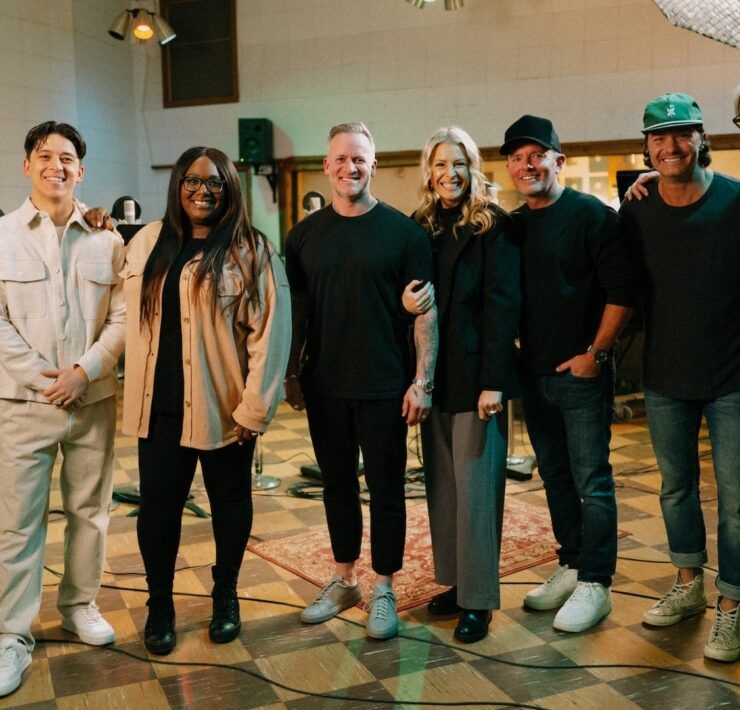The Next Stylistic Movement for Congregational Worship

Question:
We’ve seen an electronic infusion into worship music the last many years… and it feels as if that’s waning… What do you think will be the next stylistic movement for congregational worship?
Answer:
That’s an interesting question—and a really interesting assessment of where things are currently at in terms of genre and musical expression etc. The first thing to say is that if we take a few steps back, we remember that it’s a much bigger picture than we often think about. Right now, all around the globe, there are so many expressions from so many tribes and tongues, both the young and the old, both the curious and the conservative.
Even here in the USA I love the privilege of teaming up with people expressing their worship loudly and electronically and then, sometimes even in the same week, jumping in with folk like Keith and Kristin Getty, who take a more hymnic and traditional approach are doing wonderful things through the ‘Sing!’ Conference. Or—another example—on my last record, having the opportunity to sing with one of the best gospel choirs in Los Angeles; and then on my new album, featuring a classical chorale.
To me all this diversity simply points to the worth of Christ—He’s far too glorious to be contained by just one expression! So I think in asking a question like the one above it’s really important to first acknowledge the big picture. It can be all too easy to only see what’s right in front of our face, but when we step back a bit, we can see there’s far more going on, in far more imaginative and creatively diverse ways than we could ever really track.
The shift & what drives it?
Anyway… back to the actual question! Yes, in some streams and expressions of church worship music, there does seem to be a degree of fluidity where we lean heavily into some aspects of expression, and then after a while lean into something different. I think it often happens in streams of the Church that like to track with what is happening around them in contemporary music culture.
It can be all too easy to only see what’s right in front of our face, but when we step back a bit, we can see there’s far more going on, in far more imaginative and creatively diverse ways than we could ever really track.
Writers, teams or leaders/artists try to keep pace with subtle or sometimes seismic musical shifts for reasons such as relevance and welcome. And much of it seems to be almost cyclical: I can remember 20+ years ago when some people were advising me to stop leading worship on an acoustic guitar, because “it wasn’t where culture was at.” And then up popped Coldplay, and we were good again for a while, ha! And then Adele arrived; all of a sudden you were even good with just a great melody, a great vocal, and a piano.
And that was an encouraging moment I felt for so many worship leaders, that it didn’t always have to be the grand and the programmed and the complex; it could just be a heart, some voices and a great song.
The bigger picture
I’d agree with your comment that there have been some shifts towards the organic and away from the electronic. Having said that, electro and programming and Ableton and Loopcommunity.com and Multitracks.com are still very much alive and well too!
And maybe that’s the beautiful thing: that some of the Church leans back towards the breath-filled, and the hand-played and the uncomplicated, while other streams move forward with those more computer-driven expressions. And all do so for the glory of God and the furthering of His gospel among different people groups.
The new and the constant
So my answer would be that I’m always keen to see what each generation unveils creatively, but I think it’s impossible to sum up the “next” or the “new.” There’s just too much going on—too broad of a creative spectrum across the Church to be able to get handle on it.
…some of the Church leans back towards the breath-filled, and the hand-played and the uncomplicated, while other streams move forward with those more computer-driven expressions. And all do so for the glory of God and the furthering of His gospel among different people groups.
My gut instinct though is that there are a few factors that will always win the day. We can move away from them at times, but we always seem to keep coming back to elements such as an inspiring melody, a repeatable hook, singability and a human touch—by which I mean instruments played by a human hand and voices less compressed and processed.
Thanks Kyle for your question—very thought-provoking!
What's Your Reaction?
Matt Redman is a GRAMMY®-Award winning worship leader and songwriter who has been a leading contributor to the global Church’s songbook over the last twenty years. His journey as a worship leader and songwriter has taken him to countries such as South Africa, Japan, India, Australia and the Czech Republic. Along the way he has sung in venues such as Madison Square Garden, Wembley stadium, and the Royal Albert Hall - as well as recording in iconic studios such as Abbey Road in London and Capitol Records in LA. Matt Redman’s best songs include The Heart of Worship, Blessed Be Your Name, Our God - and the double-Grammy winning 10,000 Reasons. More recent co-writes include Do It Again and Build my Life. Beyond music, he is an author and also launched a successful podcast in 2021, ‘Redman & Riddle’, which he co-hosts with worship artist Jeremy Riddle. He recently announced his fourteenth full-length album, set to release in mid-2023, which is introduced by debut single ‘Son of Suffering’. Originally from England, Matt Redman now resides in California with his wife Beth and their five children.






God stuff Matt